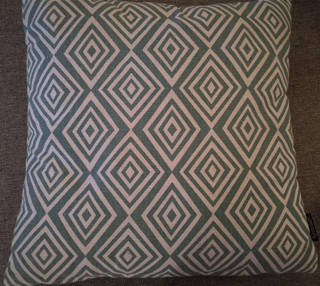...will you help me immortalize it?
I've had this pillow a few years now, and apparently it's time to get rid of it. Can you please write a function or program, that I can bring with me and use to recreate this pillow whenever I want to reminisce a bit.
It must work with no input arguments.
The output should look exactly like this (trailing newlines and spaces are OK).
/////\\\\\/////\\\\\/////\\\\\/////\\\\\/////\\\\\/////\\\\\
/////\\\\\/////\\\\\/////\\\\\/////\\\\\/////\\\\\/////\\\\\
/////\\\\\/////\\\\\/////\\\\\/////\\\\\/////\\\\\/////\\\\\
/////\\\\\/////\\\\\/////\\\\\/////\\\\\/////\\\\\/////\\\\\
\\\\\/////\\\\\/////\\\\\/////\\\\\/////\\\\\/////\\\\\/////
\\\\\/////\\\\\/////\\\\\/////\\\\\/////\\\\\/////\\\\\/////
\\\\\/////\\\\\/////\\\\\/////\\\\\/////\\\\\/////\\\\\/////
\\\\\/////\\\\\/////\\\\\/////\\\\\/////\\\\\/////\\\\\/////
/////\\\\\/////\\\\\/////\\\\\/////\\\\\/////\\\\\/////\\\\\
/////\\\\\/////\\\\\/////\\\\\/////\\\\\/////\\\\\/////\\\\\
/////\\\\\/////\\\\\/////\\\\\/////\\\\\/////\\\\\/////\\\\\
/////\\\\\/////\\\\\/////\\\\\/////\\\\\/////\\\\\/////\\\\\
\\\\\/////\\\\\/////\\\\\/////\\\\\/////\\\\\/////\\\\\/////
\\\\\/////\\\\\/////\\\\\/////\\\\\/////\\\\\/////\\\\\/////
\\\\\/////\\\\\/////\\\\\/////\\\\\/////\\\\\/////\\\\\/////
\\\\\/////\\\\\/////\\\\\/////\\\\\/////\\\\\/////\\\\\/////
/////\\\\\/////\\\\\/////\\\\\/////\\\\\/////\\\\\/////\\\\\
/////\\\\\/////\\\\\/////\\\\\/////\\\\\/////\\\\\/////\\\\\
/////\\\\\/////\\\\\/////\\\\\/////\\\\\/////\\\\\/////\\\\\
/////\\\\\/////\\\\\/////\\\\\/////\\\\\/////\\\\\/////\\\\\
\\\\\/////\\\\\/////\\\\\/////\\\\\/////\\\\\/////\\\\\/////
\\\\\/////\\\\\/////\\\\\/////\\\\\/////\\\\\/////\\\\\/////
\\\\\/////\\\\\/////\\\\\/////\\\\\/////\\\\\/////\\\\\/////
\\\\\/////\\\\\/////\\\\\/////\\\\\/////\\\\\/////\\\\\/////
This is code golf, so the shortest code in bytes win!
Leaderboard
var QUESTION_ID=98701,OVERRIDE_USER=31516;function answersUrl(e){return"https://api.stackexchange.com/2.2/questions/"+QUESTION_ID+"/answers?page="+e+"&pagesize=100&order=desc&sort=creation&site=codegolf&filter="+ANSWER_FILTER}function commentUrl(e,s){return"https://api.stackexchange.com/2.2/answers/"+s.join(";")+"/comments?page="+e+"&pagesize=100&order=desc&sort=creation&site=codegolf&filter="+COMMENT_FILTER}function getAnswers(){jQuery.ajax({url:answersUrl(answer_page++),method:"get",dataType:"jsonp",crossDomain:!0,success:function(e){answers.push.apply(answers,e.items),answers_hash=[],answer_ids=[],e.items.forEach(function(e){e.comments=[];var s=+e.share_link.match(/\d+/);answer_ids.push(s),answers_hash[s]=e}),e.has_more||(more_answers=!1),comment_page=1,getComments()}})}function getComments(){jQuery.ajax({url:commentUrl(comment_page++,answer_ids),method:"get",dataType:"jsonp",crossDomain:!0,success:function(e){e.items.forEach(function(e){e.owner.user_id===OVERRIDE_USER&&answers_hash[e.post_id].comments.push(e)}),e.has_more?getComments():more_answers?getAnswers():process()}})}function getAuthorName(e){return e.owner.display_name}function process(){var e=[];answers.forEach(function(s){var r=s.body;s.comments.forEach(function(e){OVERRIDE_REG.test(e.body)&&(r="<h1>"+e.body.replace(OVERRIDE_REG,"")+"</h1>")});var a=r.match(SCORE_REG);a&&e.push({user:getAuthorName(s),size:+a[2],language:a[1],link:s.share_link})}),e.sort(function(e,s){var r=e.size,a=s.size;return r-a});var s={},r=1,a=null,n=1;e.forEach(function(e){e.size!=a&&(n=r),a=e.size,++r;var t=jQuery("#answer-template").html();t=t.replace("{{PLACE}}",n+".").replace("{{NAME}}",e.user).replace("{{LANGUAGE}}",e.language).replace("{{SIZE}}",e.size).replace("{{LINK}}",e.link),t=jQuery(t),jQuery("#answers").append(t);var o=e.language;/<a/.test(o)&&(o=jQuery(o).text()),s[o]=s[o]||{lang:e.language,user:e.user,size:e.size,link:e.link}});var t=[];for(var o in s)s.hasOwnProperty(o)&&t.push(s[o]);t.sort(function(e,s){return e.lang>s.lang?1:e.lang<s.lang?-1:0});for(var c=0;c<t.length;++c){var i=jQuery("#language-template").html(),o=t[c];i=i.replace("{{LANGUAGE}}",o.lang).replace("{{NAME}}",o.user).replace("{{SIZE}}",o.size).replace("{{LINK}}",o.link),i=jQuery(i),jQuery("#languages").append(i)}}var ANSWER_FILTER="!t)IWYnsLAZle2tQ3KqrVveCRJfxcRLe",COMMENT_FILTER="!)Q2B_A2kjfAiU78X(md6BoYk",answers=[],answers_hash,answer_ids,answer_page=1,more_answers=!0,comment_page;getAnswers();var SCORE_REG=/<h\d>\s*([^\n,]*[^\s,]),.*?(\d+)(?=[^\n\d<>]*(?:<(?:s>[^\n<>]*<\/s>|[^\n<>]+>)[^\n\d<>]*)*<\/h\d>)/,OVERRIDE_REG=/^Override\s*header:\s*/i;body{text-align:left!important}#answer-list,#language-list{padding:10px;width:290px;float:left}table thead{font-weight:700}table td{padding:5px}<script src="https://ajax.googleapis.com/ajax/libs/jquery/2.1.1/jquery.min.js"></script> <link rel="stylesheet" type="text/css" href="//cdn.sstatic.net/codegolf/all.css?v=83c949450c8b"> <div id="answer-list"> <h2>Leaderboard</h2> <table class="answer-list"> <thead> <tr><td></td><td>Author</td><td>Language</td><td>Size</td></tr></thead> <tbody id="answers"> </tbody> </table> </div><div id="language-list"> <h2>Winners by Language</h2> <table class="language-list"> <thead> <tr><td>Language</td><td>User</td><td>Score</td></tr></thead> <tbody id="languages"> </tbody> </table> </div><table style="display: none"> <tbody id="answer-template"> <tr><td>{{PLACE}}</td><td>{{NAME}}</td><td>{{LANGUAGE}}</td><td>{{SIZE}}</td><td><a href="{{LINK}}">Link</a></td></tr></tbody> </table> <table style="display: none"> <tbody id="language-template"> <tr><td>{{LANGUAGE}}</td><td>{{NAME}}</td><td>{{SIZE}}</td><td><a href="{{LINK}}">Link</a></td></tr></tbody> </table>
